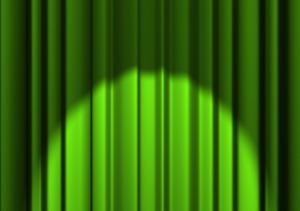Going public
A tall poppy fear or the absence of a competitive intellectual class. Why are Australians so reluctant when it comes to public intellectual life?
A tall poppy fear or the absence of a competitive intellectual class. Why are Australians so reluctant when it comes to public intellectual life?

Opinion is cheap and the pundits are proliferating, partisan and noisy.
With the rapid explosion of social media and the blogosphere it’s never been easier to broadcast your views, whatever your message may be.
But where is the quality in-depth intellectual muscle – beyond 140 characters – so many of us are looking for? Where are our modern public intellectuals?
There are many definitions of what a public intellectual is – from making a living through the battle of ideas to a scholar who uses specialised research to influence public policy.
The late Christopher Hitchens, no fan of the tag, conceded “we probably do need a term that expresses a difference between true intellectuals and the rival callings of ‘opinion maker’ or pundit”.
Regardless of which definition you use or abuse, one thing is certain, Australian voices are notably absent. When the prestigious magazines Prospect and Foreign Policy published their last poll of the world’s top 100 public intellectuals only one Australian made the cut – Princeton philosophy professor Peter Singer, who has lived in the US for many years.
“There’s something about Australian culture and identity that is particularly hostile to the notion of a public intellectual,” says Associate Professor Sarah Maddison, an ARC Future Fellow in the Faculty of Arts and Social Sciences at UNSW. “It implies elitism, it implies education, the ivory tower – all profoundly ‘un-Australian’.”
An ongoing tall poppy fear or something as fundamental as the absence of a competitive intellectual class? Certainly academics don’t play the same visible role as they once did.
“You’ve got international heavies like Peter Singer who never run away from a fight but generally we’re almost apologetic in the way we think about our intellectual life,” says broadcaster Phillip Adams, who as host of Late Night Live on ABC Radio National has arguably interviewed more prominent thinkers than anyone else in Australia.
“It doesn’t matter who you get on from America – from the lowest to the loftiest – they come on air fighting: to sell, to be heard, to cut through. They come from an aggressive, much more competitive culture than ours so they’re all unashamedly energetic.
“But the Australians are hard to muster; they’re much less willing to enter the fray.”
Read the full story in the latest issue of Uniken.
Since this article was published, Anne Summers has launched a free digital magazine. The launch issue features a cover story on UNSW Chancellor David Gonski.
Media contact: Steve Offner, Uniken Editor, 02 93851583